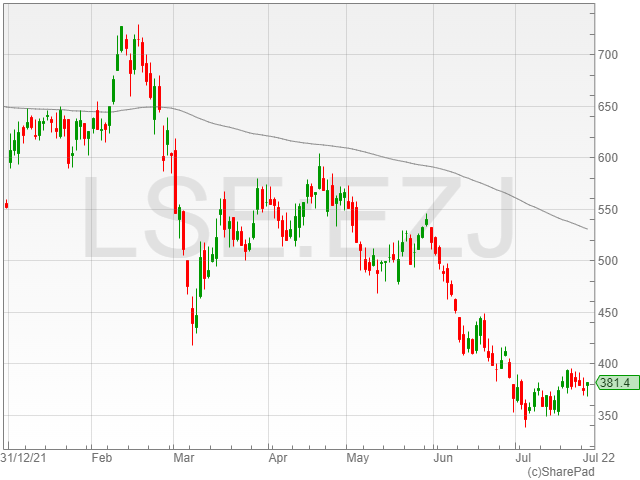easyJet shares increased 1.2% to 378.7p in early morning trading on Tuesday after the budget airline announced a revenue growth to £1.7 billion in Q3 2022 compared to £213 million in Q3 2021.
The travel group reported a passenger revenue climb to £1.1 billion from £152 million the last year, alongside a rise in ancillary revenue to £603 million against £61 million on the back of an increase in capacity flown.
Its holiday packages generated £16 million in profit over the period, and the firm recorded a sevenfold climb in passenger numbers over the previous year, with 22 million passengers flown at 87% of 2019 capacity and a high of 92% in June.
easyJet also commented its airline ancillary revenue per seat of £19.47 continued to benefit from cabin bags and bundles bringing incremental revenue.
Meanwhile, its ancillary yield per passenger of £22.07 continued to outperform pre-pandemic levels, representing a 55% climb year-on-year.



“Ancillary yields are up 55% on pre-pandemic levels as passengers seem more willing to spend on extras. This may well be caused by a new mentality sparked by the fact so many people haven’t had a foreign holiday in years, and how sticky this elevated demand will be, is not yet known,” said Hargreaves Lansdown equity analyst Sophie Lund-Yates.
“The question now is how well this new framework can be maintained as the cost-of-living crisis swells. As households continue to feel the pinch, we may well see another resurgence in the stay-cation trend seen during the pandemic as families try to economise.”
“The airlines best primed to encourage people to fly in these circumstances are those that offer reasonable rates to short and medium-haul destinations, with the added benefit of flying into more centralised airports a very real sweetener in easyJet’s toolkit.”
easyJet narrows loss
The company highlighted a headline pre-tax loss of £114 million over the financial term, marking a £204 million improvement over its £318 million loss the year before.
However, the group noted headline costs of £1.8 billion for Q3, driven by higher levels of capacity flown and £133 million in disruption costs on the back of airport chaos as pandemic restrictions eased and passengers returned to the skies.
The airline mentioned a current net debt of £200 million against £600 million year-on-year, including cash, cash equivalents and money market deposits of £3.9 billion.
FY 2022-2023 guidance
Concerning its outlook, the group noted its Q4 was currently 71% booked, with load factor slightly ahead of 2019 and sold ticket yield 13% above FY 2019.
easyJet said it expected Q4 capacity to hit 90% of 2019 levels, with load factors over 90%.
The company added it was 83% hedged for fuel in Q4 2022 at $705 per metric tonne, 60% hedges in HY1 2023 at $784 and 33% hedges for HY2 2023 at $879, with the current spot price at 22 July 2022 of approximately $1,090.
“Despite the loss this quarter due to the short-term disruption issues, the return to flying at scale has demonstrated that the strategic initiatives launched during the pandemic are delivering now and with more to come,” said easyJet CEO Johan Lundgren.
“This includes a step-change in ancillary yields, increasing 55% versus the same period in 2019, and a record profit of £16m generated in the quarter by easyJet holidays which is on track to serve 1.1 million customers in the full year.”
“easyJet expects capacity to be c.90% of Q419 across our network of major European airports, with load factors targeted above 90%.”





